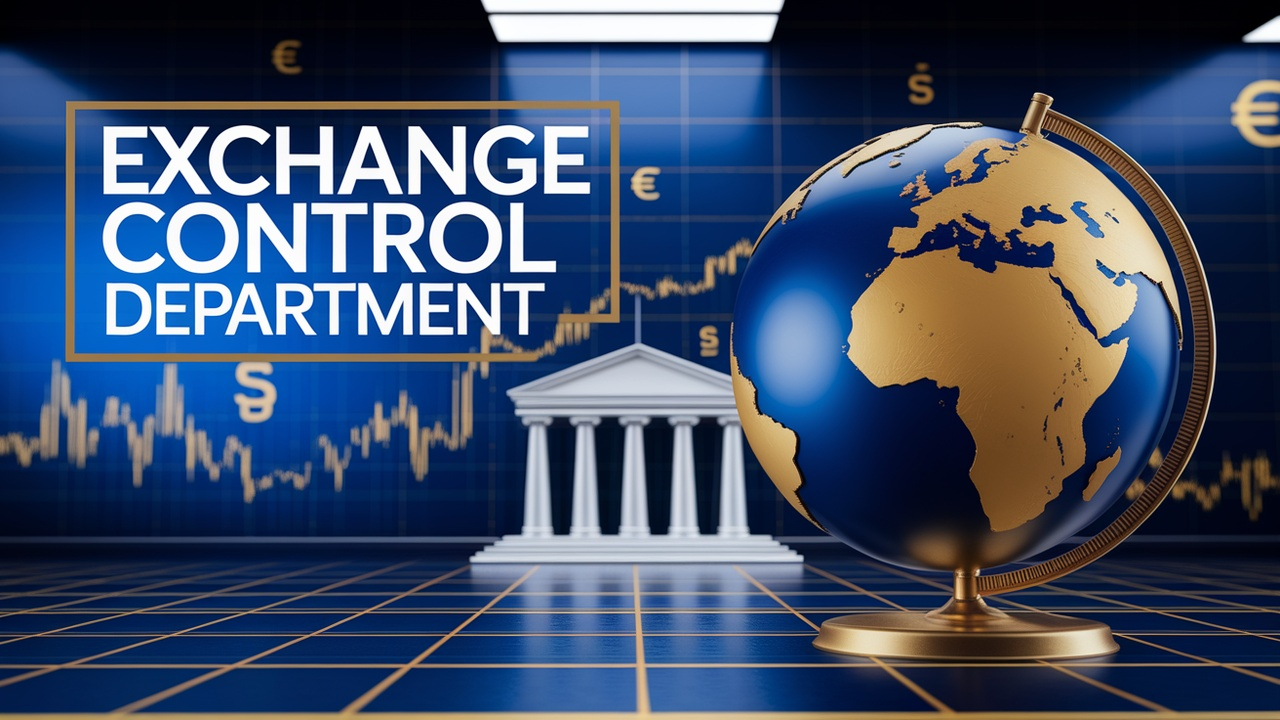ECD Full Form-Exchange Control Department
by Shashi Gaherwar
0 2465
Exchange Control Department: Role, Functions, and Impact on Financial Stability
Introduction
The Exchange Control Department (ECD) plays a crucial role in regulating foreign exchange transactions, ensuring economic stability, and maintaining control over capital movements. Typically operated under the central bank or financial regulatory body, the department oversees foreign exchange policies to prevent economic imbalances, currency speculation, and excessive capital outflows.

This article explores the role, responsibilities, regulatory framework, challenges, and significance of the Exchange Control Department in financial governance.
What is the Exchange Control Department?
The Exchange Control Department is a regulatory division within a country’s central bank or financial authority responsible for overseeing foreign exchange (forex) policies. It ensures compliance with government regulations concerning the inflow and outflow of foreign currency.
The department enforces exchange control regulations to manage forex reserves, stabilize the local currency, and prevent illegal financial transactions.
Functions of the Exchange Control Department
- Regulation of Foreign Exchange Transactions
- Monitors currency inflows and outflows to prevent excessive foreign exchange volatility.
- Implements policies to control foreign remittances and capital movements.
- Foreign Currency Reserve Management
- Works closely with central banks to maintain adequate foreign exchange reserves.
- Ensures forex reserves are used efficiently for economic growth and financial stability.
- Enforcement of Exchange Control Laws
- Ensures compliance with foreign exchange laws to prevent illegal currency trading, money laundering, and capital flight.
- Imposes penalties and restrictions on unauthorized forex transactions.
- Approval of Foreign Transactions
- Reviews and approves foreign investments, external commercial borrowings (ECB), and cross-border business transactions.
- Implements policies for foreign direct investment (FDI) approvals.
- Exchange Rate Policy Implementation
- Assists in determining and managing the country’s foreign exchange rate mechanism.
- Works with monetary authorities to stabilize currency value against global currencies.
- Prevention of Forex Speculation and Capital Flight
- Implements measures to prevent unauthorized foreign currency hoarding and speculative activities.
- Controls rapid capital outflows that could weaken economic stability.
Importance of the Exchange Control Department
- Economic Stability
- Prevents excessive fluctuations in the exchange rate.
- Protects the economy from sudden capital outflows and forex market shocks.
- Prevention of Money Laundering and Fraud
- Regulates foreign transactions to detect and prevent financial crimes.
- Works with international financial organizations to enforce anti-money laundering (AML) policies.
- Foreign Investment Regulation
- Facilitates the smooth flow of foreign direct investment (FDI) while ensuring compliance with national policies.
- Ensures foreign investors adhere to local currency and capital movement rules.
- Trade Balance Management
- Regulates forex transactions to prevent excessive trade deficits and surpluses.
- Encourages policies that support stable international trade relations.
- Monetary Policy Implementation
- Works with the central bank to ensure exchange rate policies align with national monetary goals.
- Helps control inflation by monitoring foreign exchange supply and demand.
Exchange Control Regulations and Policies
Each country enforces its own exchange control regulations to manage foreign currency transactions effectively. Some key policies include:
- Foreign Exchange Licensing
- Companies and individuals may need approval to conduct large forex transactions.
- Ensures transparency in foreign currency dealings.
- Capital Controls
- Limits on the amount of foreign currency individuals and businesses can transfer abroad.
- Helps manage capital outflows during economic crises.
- Export and Import Restrictions
- Regulations on foreign currency earnings from exports.
- Ensures forex inflows support national economic goals.
- Currency Exchange Limits
- Restrictions on currency conversion and forex transactions for non-essential purposes.
- Prevents speculation that may weaken the local currency.
- Monitoring of Foreign Loans and Investments
- Approval process for external commercial borrowing (ECB) and foreign bond issuance.
- Prevents excessive reliance on external debt.
Challenges Faced by the Exchange Control Department
- Globalization and Capital Mobility
- With increasing global trade, regulating forex transactions without restricting economic growth is challenging.
- Striking a balance between capital inflows and outflows is crucial.
- Technological Advancements and Digital Currencies
- The rise of cryptocurrencies and digital payments presents regulatory challenges.
- New frameworks are required to monitor digital cross-border transactions.
- Illicit Financial Flows and Money Laundering
- Ensuring financial transparency in an era of complex global financial networks.
- Collaboration with international organizations is essential.
- Impact of Speculative Attacks
- Countries with weak forex reserves are vulnerable to speculative currency attacks.
- Exchange control measures must mitigate these risks effectively.
Future of Exchange Control Regulations
- Adoption of Digital Monitoring Tools
- Central banks are leveraging artificial intelligence (AI) and blockchain to track forex transactions.
- Improved automation enhances compliance and reduces fraud.
- Stronger International Cooperation
- Countries are collaborating with global financial institutions (IMF, World Bank) to regulate forex movements.
- Greater transparency in cross-border financial flows is expected.
- Integration with Central Bank Digital Currencies (CBDCs)
- Some nations are developing CBDCs to regulate digital forex transactions more effectively.
- This can enhance transparency and control over foreign exchange activities.
The Exchange Control Department is a critical entity in managing a country’s foreign exchange transactions, economic stability, and monetary policies. By enforcing regulations on forex inflows and outflows, it plays a key role in controlling inflation, preventing capital flight, and stabilizing exchange rates.
As financial markets continue to evolve, exchange control regulations must adapt to new economic realities, technological advancements, and global financial challenges. Strengthening regulatory frameworks and international cooperation will ensure the effectiveness of the Exchange Control Department in the modern financial landscape.
Further Learning Resources
If you’re passionate about building a successful blogging website, check out this helpful guide at Coding Tag – How to Start a Successful Blog. It offers practical steps and expert tips to kickstart your blogging journey!
For dedicated UPSC exam preparation, we highly recommend visiting www.iasmania.com. It offers well-structured resources, current affairs, and subject-wise notes tailored specifically for aspirants. Start your journey today!

Share:









Comments
Waiting for your comments